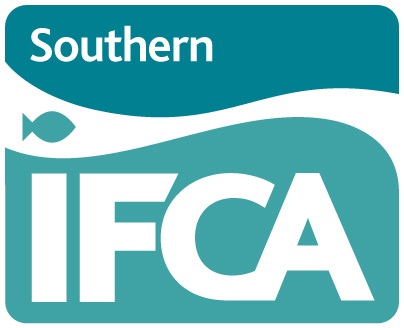Marine Protected Area Assessments
The National Site Network is a network of protected sites which are designated for rare and threatened species and rare natural habitat types. These sites include Special Areas of Conservation (SAC) and Special Protection Areas (SPA), designated under the EC Habitats Directive 1992 and the EC Birds Directive 2009 (amended), respectively. The Conservation of Habitats and Species Regulations 2017, as amended by The Conservation of Habitats and Species (Amendment) (EU Exit) Regulations 2019, transposes the land and marine aspects of the Habitats Directive and the Wild Birds Directive into domestic law, and outlines how the National Site Network will be managed and reflect any changes required by EU Exit.
Southern IFCA has duties under Regulation 9 of The Conservation of Habitats and Species Regulations 2017 as a competent authority, with functions relevant to marine conservation, to exercise those functions so as to secure compliance with the Habitats Directive and Birds Directive. Article 6(3) of the Habitats Directive requires any plan or project likely to have a significant effect on a European site (SPA or SAC) within the National Site Network, either individually or in combination with other plans or projects, to undergo an Appropriate Assessment to determine its implications for the site. Article 4(4) of the Birds Directive states that 'Member states shall take appropriate steps to avoid...deterioration of habitats or any disturbances affecting the birds, in so far as these would be significant having regard to the objectives of this Article'.
Regulation 63 of The Conservation of Habitats and Species Regulations 2017 requires Southern IFCA, as the competent authority, to make an appropriate assessment of a plan or project which is likely to have a significant effect on a European site that forms part of the National Site Network (either alone or in combination with other plans or projects) and is not directly connected with or necessary to the management of the site in question. The implications of any plan or project must be assessed in view of the site's conservation objectives.
As such, Southern IFCA undertakes an appropriate assessment for the issue of permits under the Poole Harbour Dredge Permit byelaw. The purpose of the assessment is to determine, whether or not in the view of Southern IFCA, the issue of permits will hinder the achievement of the conservation objectives of the Poole Harbour SPA and lead to an adverse effect on site integrity.
A review of research into shellfish dredging impacts identifies the permitted activity has the potential to disturb bird populations and lead to changes in prey availability. These potential impacts and risks to the integrity of the site are however mitigated through a number of conditions applied under the permit. These include the exclusion of shellfish dredging all year round in a number of key sites which represent important areas for feeding and roosting, prohibition of shellfish dredging during key sensitive times (1st November-23rd December & 25th May-30th June) in a series of sites also important for feeding and roosting, the timing of the closed season which largely corresponds to the overwintering period, a cap on fishing effort through the allocation of a set number of permits and a number of restrictions on gear configuration. Additional mitigation is also afforded through the Southern IFCA Poole Harbour Saltmarsh Protection Code of Practice which sets out guidelines promote the protection of important supporting habitats for the bird species.
Based on these mitigation measures, in the form of permit conditions and additional protection from the Poole Harbour Saltmarsh Protection Code of Practice, it is concluded that the issuing of permits under the Poole Harbour Dredge Permit Byelaw would not hinder the site from achieving its conservation objectives and as such would not have an adverse effect on the integrity of the Poole Harbour SPA and Ramsar site. The outcome of the HRA is used to determine whether the number of permits issued in sustainabile and compatible with the conservation objectives of the site.
The Monitoring & Control Plan for the fishery provides a comprehensive framework for monitoring and management, utilising a flexible permit system and the best available evidence on dredging practices and species interactions. The M&CP provides for an adaptive monitoring program for the SPA, incorporating monitoring of key variables. SPA monitoring outcomes will inform potential revisions to the HRA if required. Potential management changes under the action plan, as a result of control mechanisms being activated through the M&CP are dependent on a decision by the Authority in reviewing best available evidence. Potential additional permit conditions which could be implemented would result in reducing effort within the fishery therefore there is no risk of management changes in this regard resulting in adverse impact to the site.
Poole Harbour Special Protection Area (SPA) Appropriate Assessment - Issue of Permits Under Poole Harbour Dredge Permit Byelaw (2025)
